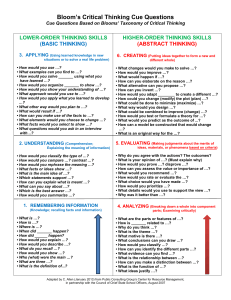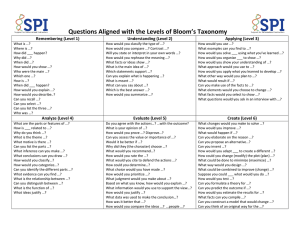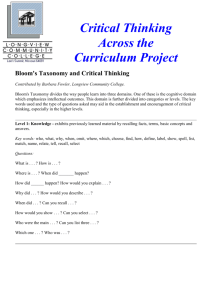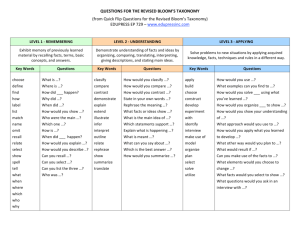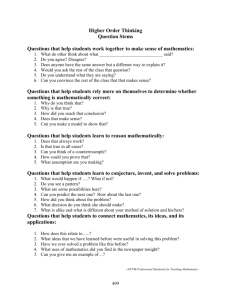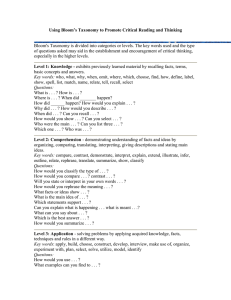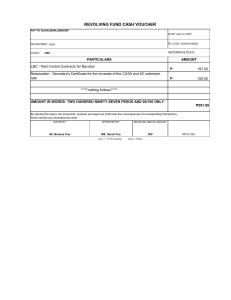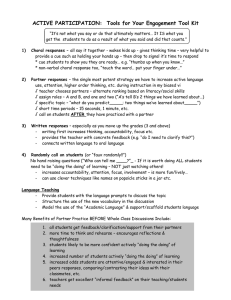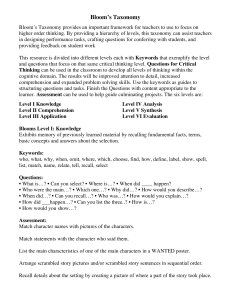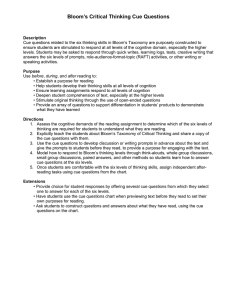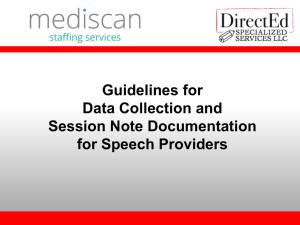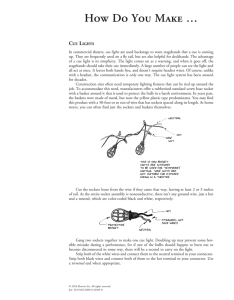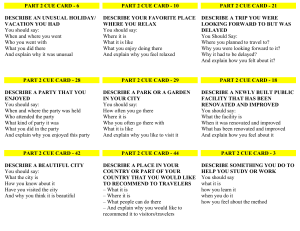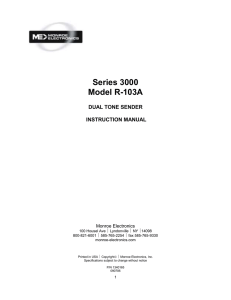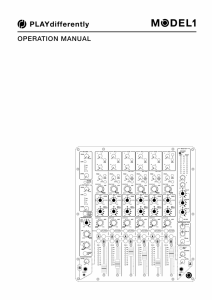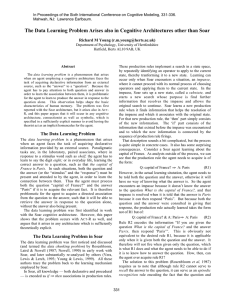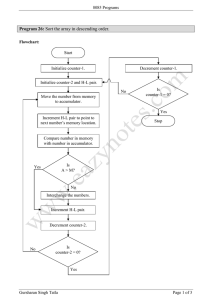Bloom`s Critical Thinking Cue Questions
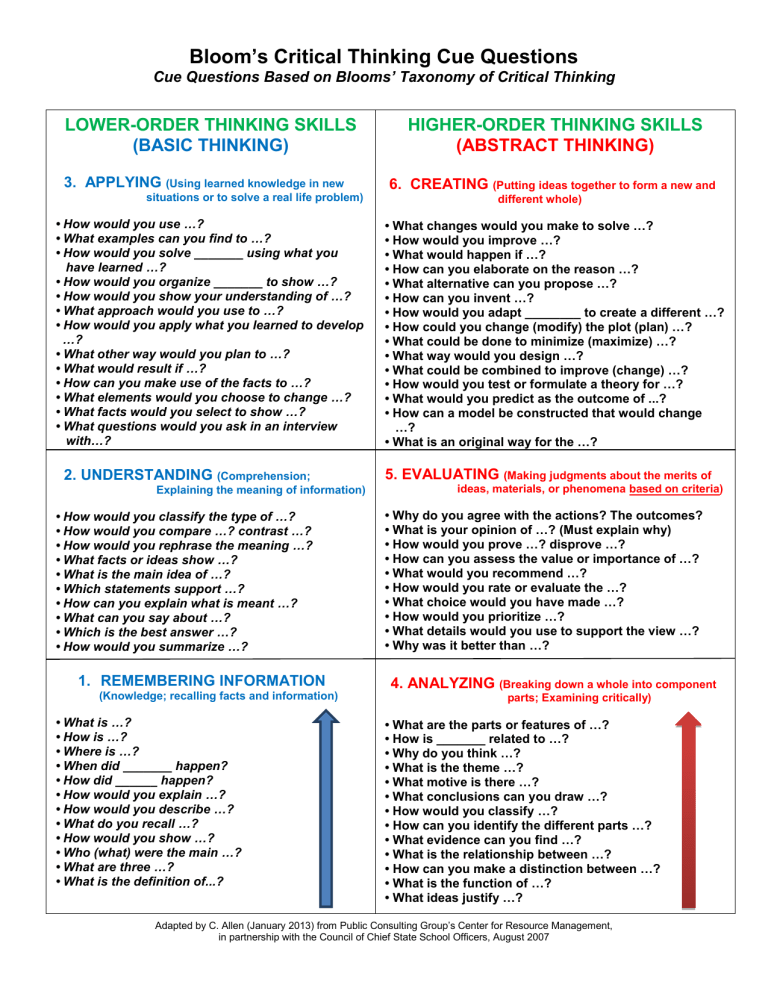
Bloom’s Critical Thinking Cue Questions
Cue Questions Based on Blooms’ Taxonomy of Critical Thinking
LOWER-ORDER THINKING SKILLS HIGHER-ORDER THINKING SKILLS
(BASIC THINKING)
3. APPLYING
(Using learned knowledge in new
(ABSTRACT THINKING)
situations or to solve a real life problem)
• How would you use …?
• What examples can you find to …?
• How would you solve _______ using what you
have learned …?
• How would you organize _______ to show …?
• How would you show your understanding of …?
• What approach would you use to …?
• How would you apply what you learned to develop
6. CREATING
(Putting ideas together to form a new and
different whole)
• What changes would you make to solve …?
• How would you improve …?
• What would happen if …?
• How can you elaborate on the reason …?
• What alternative can you propose …?
• How can you invent …?
• How would you adapt ________ to create a different …?
• How could you change (modify) the plot (plan) …?
…?
• What other way would you plan to …?
• What would result if …?
• How can you make use of the facts to …?
• What could be done to minimize (maximize) …?
• What way would you design …?
• What could be combined to improve (change) …?
• How would you test or formulate a theory for …?
• What elements would you choose to change …?
• What facts would you select to show …?
• What questions would you ask in an interview
with…?
• What would you predict as the outcome of ...?
• How can a model be constructed that would change
…?
• What is an original way for the …?
2. UNDERSTANDING
(Comprehension;
5. EVALUATING
(Making judgments about the merits of
Explaining the meaning of information) ideas, materials, or phenomena based on criteria)
• How would you classify the type of …?
• How would you compare …? contrast …?
• How would you rephrase the meaning …?
• What facts or ideas show …?
• What is the main idea of …?
• Which statements support …?
• How can you explain what is meant …?
• What can you say about …?
• Why do you agree with the actions? The outcomes?
• What is your opinion of …? (Must explain why)
• How would you prove …? disprove …?
• How can you assess the value or importance of …?
• What would you recommend …?
• How would you rate or evaluate the …?
• What choice would you have made …?
• How would you prioritize …?
• What details would you use to support the view …? • Which is the best answer …?
• How would you summarize …?
1. REMEMBERING INFORMATION
(Knowledge; recalling facts and information)
• Why was it better than …?
4. ANALYZING
(Breaking down a whole into component
parts; Examining critically)
• What is …? • What are the parts or features of …?
• How is …? • How is _______ related to …?
• Where is …?
• Why do you think …?
• When did _______ happen? • What is the theme …?
• How did ______ happen? • What motive is there …?
• How would you explain …? • What conclusions can you draw …?
• How would you describe …?
• How would you classify …?
• What do you recall …? • How can you identify the different parts …?
• How would you show …? • What evidence can you find …?
• Who (what) were the main …? • What is the relationship between …?
• What are three …?
• How can you make a distinction between …?
• What is the definition of...? • What is the function of …?
• What ideas justify …?
Adapted by C. Allen (January 2013) from Public Consulting Group’s Center for Resource Management, in partnership with the Council of Chief State School Officers, August 2007
